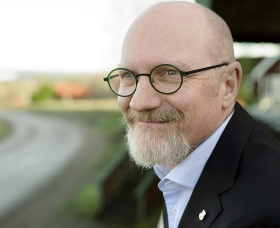
Rottneros Reports January-September 2020 Results "The pulp market continues to be squeezed by the pandemic's effects on the world economy. However, the list price of NBSK has been relatively stable at around USD 840 for over a year, which is an unusually long period of limited price movements." – Lennart Eberleh, President and CEO, Rottneros.
"The pulp market continues to be squeezed by the pandemic's effects on the world economy. However, the list price of NBSK has been relatively stable at around USD 840 for over a year, which is an unusually long period of limited price movements." – Lennart Eberleh, President and CEO, Rottneros.
Oct. 22, 2020 - Swedish market pulp producer Rottneros said that although the COVID-19 pandemic has not had any negative effect on production, it has weakened demand resulting in lower pricing.
CEO CommentsLennart Eberleh, President and CEO of Rottneros made the following comments: Our focus on continuous improvements are generating result. At the same time, the effects of the corona pandemic weigh on both the market and our profitability. A new production record for a single quarter was reached during Q3 through strong volume growth. Our committed employees, solid balance sheet and efficient mills mean that we have good resilience against a continued tough market. Our strategic focus, to take Rottneros to the next level remains. The consequences of the corona pandemic continued to affect our operations during the third quarter. Our extensive counter measures meant that the infection was kept away from our operations, but naturally it affects both the work environment and the opportunity to meet existing and new customers. Despite the challenges, we follow our long-term plan to increase production through continuous improvements in our processes and routines. During Q3, production increased by 10 percent compared with Q3 last year. This meant a new record level for a single quarter, just over 110 thousand tonnes. The comparison was affected by the fact that the maintenance stop at Rottneros Mill was made a quarter earlier this year compared with last year. During Q4, production levels will be affected by the planned maintenance shutdown in Vallvik in October, in line with the normal seasonal pattern. Net turnover decreased by 18 percent during the quarter compared with the same period last year. At the same time, EBIT shrunk by 50 MSEK to 4 MSEK. The decline is explained by lower sales prices due to the weaker pulp market. As supply was greater than demand, we continued to sell a larger share than normal on short-term contracts, affecting margins negatively. List Price Moves Sideways Despite PandemicThe pulp market continues to be squeezed by the pandemic's effects on the world economy. However, the list price of NBSK has been relatively stable at around USD 840 for over a year, which is an unusually long period of limited price movements. The fact that high-cost producers are now unprofitable, even taking into account only variable costs, suggests that prices should be close to the bottom and may eventually move upwards. Demand in China has picked up, which provides support for the global pulp market and the world economy in general. Demand within printing and writing paper is showing signs of leveling off after falling sharply during the first half of the year. The long-term trend of declining pulp demand for graphic applications, in parallel with the growth of hygiene applications and packaging, means that the market is likely to trend structurally towards a more stable demand. In the US, the share of market pulp that is used for printing and writing paper currently makes up only 10 percent of the total market. Historically, the corresponding figure has been around a third of the market. Rottneros benefits from the growth in the hygiene and packaging areas as we have strong market positions in these segments. The supply of pulp wood remains at a healthy level. The supply balance between local wood and imports was at a favorable level during the quarter. A lower production rate in the pulp and paper industry, at the same time as the bark beetle problem boosts supply of timber, is positive for the market balance and means that prices decline. Our large electricity purchases in Rottneros Mill continue to be affected by currently significant price differences between the area price we pay and the system price, a theoretical price for the Nordics. This is due to the lack of transmission capacity between the different parts of Sweden and has meant that the price for us has been extremely high for short periods. About RottnerosRottneros is an independent producer of market pulp. The Group comprises the parent company Rottneros AB, listed on Nasdaq Stockholm, and its subsidiaries Rottneros Bruk AB and Vallviks Bruk AB with operations involving the production and sale of market pulp. The Group also includes Rottneros Packaging AB, which manufactures fibre trays, the wood procurement company Rottneros Baltic SIA in Latvia and the forest operator Nykvist Skogs AB. For further information, visit: www.rottneros.com SOURCE: Rottneros AB |